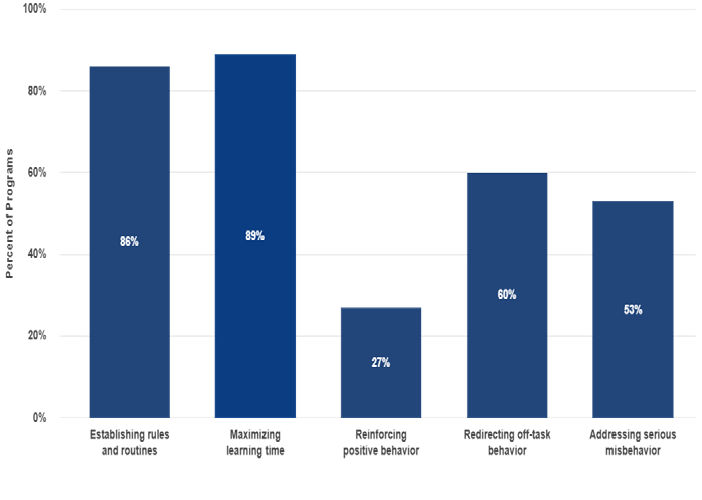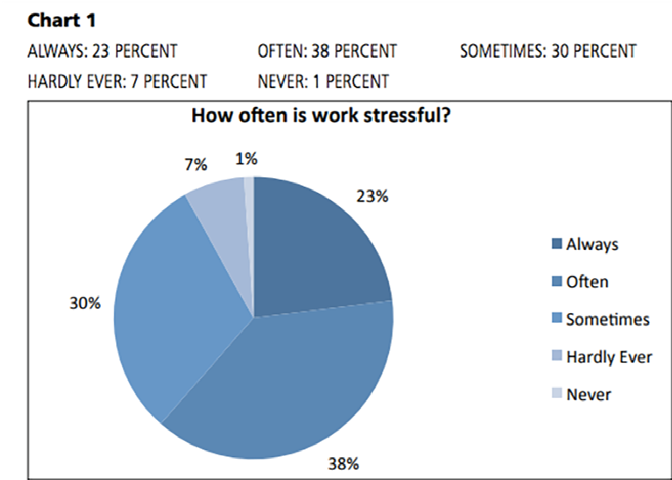As the summer break comes to an end, teachers across the globe gear up for the start of a new school year. The back-to-school season is a time filled with excitement, anticipation, and the chance for a fresh start. However, amid the hustle and bustle of preparations, you can often find yourself susceptible to making common mistakes that can affect the entire academic year. If you are a teacher looking forward to starting another school year, read on to learn about the common pitfalls you should try to avoid.
Common Mistakes You Should Stay Away From To Avoid Regret
These are the errors you definitely shouldn’t be making if you want a seamless academic year:
1. Not Setting The Correct Tone
One of the most significant mistakes teachers can make is underestimating the importance of the first week of school. The first week sets the tone of the whole year and can easily be the deciding factor behind a calm, productive class and an out-of-control, disastrous one. Moreover, most teachers after coming from a break can fail to organize materials, plan lessons, and arrange the classroom environment which can lead to confusion and disruptions in the early weeks of school.
Therefore, if you want to set up a welcoming, organized, and engaging classroom, make sure to present yourself in a manner that strikes an appropriate balance between friendly and firm, thereby fostering a conducive learning atmosphere for students.
2. Doing Too Much, Too Soon
Teachers often fall into the trap of overloading the curriculum in a bid to cover an extensive amount of content. While it’s essential to challenge students, overwhelming them with too much information can lead to burnout and hinder comprehension. You must understand they are just kids and are not preparing for college examinations.
Thus, there is no need to get into all the nitty-gritty of academic materials as soon as the school opens. Balancing the curriculum with achievable goals and allowing time for in-depth exploration of topics can significantly enhance students’ learning experiences.
3. Ignoring Classroom Management Strategies
Every student is unique, with different learning styles, strengths, and weaknesses. Ignoring this diversity and employing a one-size-fits-all teaching approach can hinder student engagement and achievement. Therefore you should create effective classroom management strategies to create a more inclusive and effective learning environment.

Source: nctq.org
Neglecting to establish and communicate clear expectations for behavior, routines, and procedures can result in chaotic classrooms. Thus, you should proactively implement behavior management strategies that promote a respectful and disciplined learning environment, setting the tone for the rest of the academic year.
4. Underestimating the Power of Icebreakers
The education landscape is constantly evolving, with new teaching methodologies, technologies, and curricular standards emerging regularly. Therefore, establishing a positive classroom culture from the start is essential for building strong relationships among students. Teachers who resist change and cling to outdated practices risk becoming stagnant in their professional growth.
Hence, overlooking icebreaker activities and team-building exercises can make students feel isolated and uncomfortable. Incorporating these activities during the initial days of school can foster camaraderie, enhance social interactions, and create a welcoming atmosphere.
5. Overlooking Technology Integration
In the digital age, technology has become an integral part of education. Failing to integrate technology effectively into the classroom can hinder students’ digital literacy and engagement. Furthermore, you should also familiarize yourself with relevant educational tools and platforms to enhance your teaching methods and equip students with essential skills for the future.
In case you feel the student is not doing well, reach out to parents immediately to find out the root cause. Open communication between teachers and parents is vital for student success. Failing to establish this line of communication can lead to misunderstandings, missed opportunities for parental involvement, and a lack of support for students.
6. Sweating Over Small Stuff
You often dedicate yourself entirely to your students, sometimes at the expense of your well-being. Neglecting self-care can lead to burnout, decreased enthusiasm, and compromised teaching quality. Hence, you should prioritize your mental and physical health by setting boundaries, practicing stress-reduction techniques, and finding time for hobbies and relaxation.

Source: the74million.org
Additionally, you should regularly assess your teaching strategies, identify areas for improvement, and adapt your approaches based on the evolving needs of your students. Neglecting to reflect on teaching methods, lesson outcomes, and student interactions can hinder improvement and growth.
7. Being Overly Optimistic
This is something that new teachers should especially be careful of. Good things don’t just happen and your profession cannot always be a bed of roses. You might have joined the profession because of your idealistic and optimistic thought to change the world, however, the real educational sector does not work like that. You will have diversified students, various colleagues with various temperaments, management, school leaders, administrators, and a lot of other things to deal with.
This can sometimes diminish your light for fresh and innovative ideas. However, do not be too disappointed and you will only end up being frustrated. There will be times when your best efforts will not be enough, but know that these times will pass and it’s just a small price you are paying for your dream job.
Make Your Academic Year A Success
The back-to-school season offers a fresh start and a chance to set the tone for a successful academic year. However, you should not be too harsh on yourself as everyone is bound to make mistakes. These situations should act as learning possibilities rather than regret.
Don’t be surprised if you cannot utilize everything that you learned during your pre and primary teacher training courses as the real scenario works differently. Take time to adapt and adjust to the current world and make your academic year a huge success.



